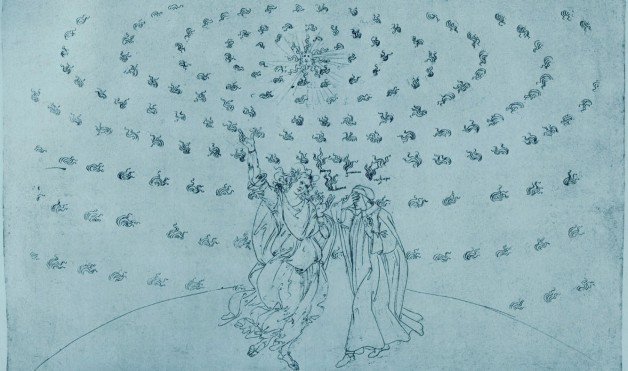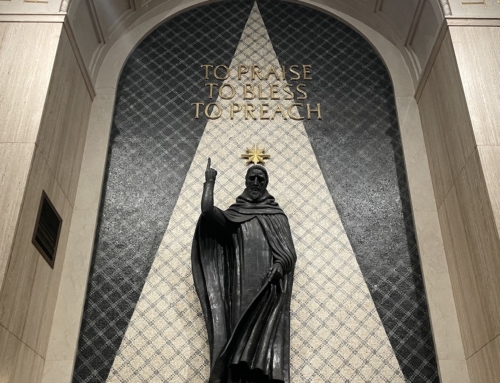“Why do we have to believe in something that we can’t completely understand in order to get to heaven? Is it really fair for God to determine where we spend eternity based on things we can’t see and verify?”
This is a common, skeptical way of thinking about salvation and God. Heaven is seen as an option that God offers us, and one that we should choose, provided that we can negotiate a good deal and not risk too much. While there is some value in raising questions such as those above (if only to see how misguided they are), it is, of course, problematic to think of our salvation in terms of cutting a deal with God, when in fact salvation is a pure gift by which we are perfected in our human nature.
In his Summa Theologiae, St. Thomas Aquinas speaks about what it means for man to be happy. While we are made happy in a limited and provisional way when our natural desires and capacities are fulfilled and actualized, we cannot begin to be fully happy until we realize what is the source and end of our existence: God, the universal cause of all things. Now, although we can know that God is, we cannot know what he is by natural powers alone. God desires, however, that after we die we should know him in his essence, that we should see him as he is. In his love for us, God raises and enlightens our intellects, uniting us to himself and allowing us to behold him as he truly is. Aquinas concludes that man’s ultimate happiness consists in this supernatural vision of God, seen face to face, with our minds elevated by the light of glory. And this can only happen by God’s gift.
Unfortunately, people often view their salvation in a very different way. They see it as something distant from themselves and unrelated to their happiness. Few people stop and think, “My happiness consists in being supernaturally united to God!” On the contrary, most people live their lives on a mundane level, and they end their day in frustration, dissatisfied with what they thought would make them happy. Although heaven is the one thing that can bring us complete joy, most people see it as something unattractive and, so to speak, beyond their comfort level.
While it is true that heaven is something beyond our understanding, that doesn’t mean it should be unattractive. The man who limits himself to natural goods because he is afraid to move beyond them, is not very different from the skeptic who questions the fairness or the existence of a heaven that we cannot see or verify. Both are afraid of losing control of their lives, of surrendering themselves to something they cannot fully grasp.
Heaven, however, is our supernatural end, and it is offered to us by God’s grace. It is the perfection of our nature, the goal of our existence, the fullness of joy; and it is all of these things because it is the vision of God. It is the reason God became man: so that we might know and love him as he knows and loves us. As St. Athanasius puts it, God himself became man so that we might become divine. A heaven that is less than this is no heaven at all.
✠
Image: Botticelli, Ascent to Primum Mobile, Illustration for Dante’s Paradiso (Canto XXVII)







